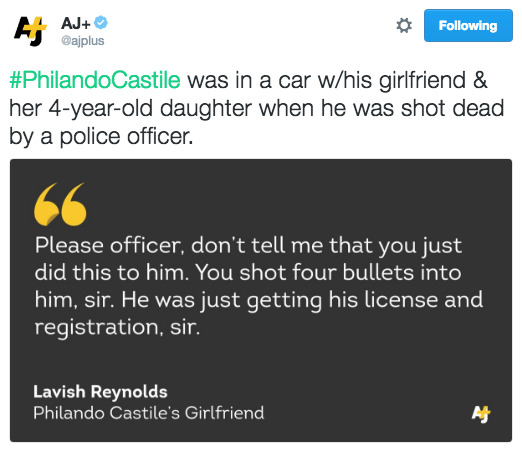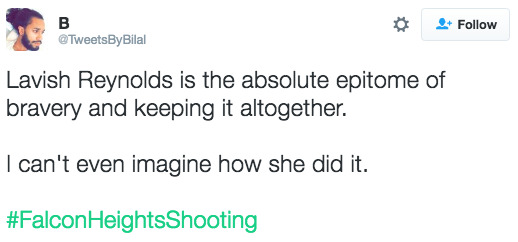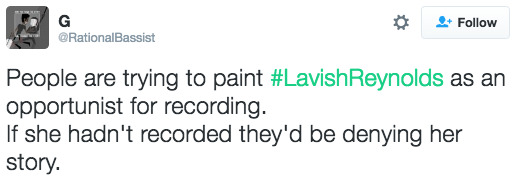Social Justice + Politics + Organizing + Changing the World
Last active 3 hours ago
Don't wanna be here? Send us removal request.
Photo

Hey you know how I said I was going to make a workbook on the kind of bullshit you need to do when someone you love dies? I actually did that.
HERE IS THE VERSION WITH LOTS OF SWEARING AT THE USELESS, SHITTY SITUATION YOU’RE IN.
HERE IS THE VERSION WITH A FAIR AMOUNT OF BLACK HUMOR BUT NO CURSEWORDS.
Featuring Helpful Sections such as:
Death Certificates – What you need, why you need them, and how to get them
Prepare to spend a long and miserable time on the phone
What the Everloving Fuck is Probate
Some Simple Dos and Don’ts
Shitty Mad Libs – Templates for writing Obituaries and Memorials
How to plan a non-religious death party
So you suddenly have to become some sort of hacker or some shit
This is an eighteen page book that you can print out, download, share, and give away; it is meant to be used to collect information about funeral planning and account management after a death OR you can use it BEFORE you die and give people information so they’re not stuck playing Nancy Fucking Drew while trying to keep seventeen cousins who crawled out of the woodwork from gutting each other in front of the fucking casket as they argue about who’s inheriting grandma’s favorite dentures.
It’s not exactly cheerful and it’s full of things that are probably going to feel really fucking raw if you’re processing a fresh death.
I’m sorry! I love you! Death is shitty! I’m trying to laugh about it a little and I hope you can laugh a little too because otherwise we’re all just going to cry together.
Good luck!
(in memory of my weirdo mother and her weirdo siblings who all died too fucking young and left me holding this flaming bag of dogshit)
134K notes
·
View notes
Text
The fact that skam españa isn’t trending, when skam Italia, skam france and druck did the same were, explains that a lot of fans in the skam comunity are just here to see two cute boys kissing. Sorry not sorry
3K notes
·
View notes
Photo

THIS ONE TIME A KID IN MY NEIGHBORHOOD WAS LATE GETTING HOME BECAUSE HE WAS BUYING DRUGS SO HE TOLD HIS MOM HE GOT KIDNAPPED AND SHE MADE HIM REPORT IT TO THE POLICE AND HE DESCRIBED THE KIDNAPPER AS COUNT OLAF AND THEN THIS HAPPENED
680K notes
·
View notes
Photo


I will NEVER EVER EVER attempt to justify the violence and pain he brought into some lives. It was nothing short of disgusting and despicable, but I also won’t ignore the hope and understanding he brought to others. As a believer and pracitioner of restorative and transformative justice, I believe XXXtentacion should have had and opportunity to be accountable and atone. I’m wishing the people he harmed healing in this confusing time, and also wishing the people who loved him healing in this moment of loss.
314 notes
·
View notes
Photo










Save Our Kids (5/2/17): Jordan Edwards, a 15-year old boy from the Dallas-area, was murdered by police on Saturday night, after leaving a party with his friend. He was unarmed and a passenger in the vehicle. The police shot arbitrarily into a moving vehicle of teenagers for some imagined threat that isn’t even flying within the officers’ own department. He is the youngest person killed by police this year. From NBC News:
“As the family struggles to deal with the pointless murder of their child they now have to face false claims of under-age drinking and fabrications about ‘aggressive’ behavior,” Merritt said in a statement.
Merritt said the car, filled with five teenage boys, was trying to maneuver out of a parking spot when a person “appearing to be an office” shouted profanity at them while shining a flashlight and “before the driver could respond the unidentified police officer fired multiple shots at the vehicle.”
“The Balch Springs PD has offered a familiar narrative in the absence of weapons or any indication of actual danger to the officer and any other person. The claim that the vehicle that Edwards occupied when he was shot 'moved in an aggressive way toward an officer’ is transparently contrived in order to justify a defenseless act of murder,” he said.
Edwards was a straight “A” freshman at Mesquite High School and student-athlete who was loved by his family and peers alike, he said.”
I’m so weary y’all. They keep killing our babies and demanding that we resist non-violently. Who can sit idly by while our children are raised for slaughter in this country? Rest in power, Jordan Edwards. We fight for you now too. #farfromover
1K notes
·
View notes
Photo

Keep yr eyes open.
And remember, if you see folks with tattoos, car decals, or flags of these symbols or any other recognized white supremacist/neo-nazi/fascist symbols, GET PHOTOS OF THAT SHIT. I really cannot stress this enough. Make their faces and vehicles known.
51K notes
·
View notes
Text
Me: I just want a whole week to grieve before there’s a new hashtag for someone murdered by the police
Social Media:

280 notes
·
View notes
Note
Could you clearly explain what the term neoliberalism actually means? Because it is used so often to describe such a variety of things but always in a vague manner
Neoliberalism, as I and others talk about it, is a broad ideology that really started becoming popular in political, economic, and governmental circles in the 1970’s and reached its peak in global popularity in the 1980’s. It describes the political paradigm we are in right now, the political conditions of modern society. As the name suggests, it calls for a revitalization of the classical liberal view of economic policy. Concretely, this means free trade, low taxes, deregulation, privatization, and balanced budgets.
This post is going to shortly explain the neoliberal story as it took place in America. I only mention the experiences in other nations at the end for brevity, relevance to my followers and I, and because I don’t understand them as well as I understand America’s.
Neoliberalism emerged as a reaction to the Keynesian welfare state politics that had become popular in the West. In the 1970’s, the American economy was experiencing a phenomenon called “stagflation”- simultaneous stagnation and inflation- that the old-school Keynesians who had been the dominant group in American economics had believed to be impossible for any extended period of time. In the intellectual gap their failure left, economists like Milton Friedman made the case not only for a different approach to monetary policy in order to solve stagflation, but also for the idea that many forms of governmental involvement in the economy being harmful. Others, like James Buchanan, made the case to the economics profession that government bureaucrats acted in selfish self-interest, not the public interest, and thus that policy prescriptions should be much more cautious in calling for governmental solutions to economic issues.
At the same time, businesses began to be more aggressive in asserting their interests in politics. This development was prompted in part by soon-to-be Supreme Court Justice Lewis F. Powell, Jr. writing a memo to the U.S. Chamber of Commerce in 1971 arguing that “the American economic system is under attack” from progressive critics of big business, and that the business community should fight back. A number of conservative and libertarian think tanks and advocacy organizations were created and expanded in order to make the intellectual case for “freer” capitalism, including the Heritage Foundation (1973), the Cato Institute (1974), and the American Enterprise Institute (founded in 1938 but became influential during the 1970′s).
Take all of these trends, throw in increased public skepticism of government after Vietnam and Watergate, and you have a recipe for fundamental political change.
Between the economic disarray, the public distrust, and both intellectual and financial support for an alternative to post-war welfare statism, a new ideology became dominant in the political sphere. This ideology was encapsulated by Ronald Reagan, who summed it up perfectly with his famous quote: “in this current crisis, government is not the solution to the problem; government is the problem.”
That’s is standard conservative fare today, but we forget how radical both that message and Reagan himself were at the time. I’ve noted before that, even at the time of his election, Reagan was seen by some as too far right to win. The last (elected) Republican president before him, Nixon, created the EPA, OSHA, and a number of other progressive programs. He also called for healthcare reform even stronger than Obamacare, and an expansion of welfare, the latter of which was the inspiration for the Earned Income Tax Credit, passed shortly after he left office. Parts of Nixon’s economic agenda were noticeably left-wing, so much so that one journalist at the time noted that he left the Democrats having to resort to “metooism.”
But Nixon was simply responding to political pressures from the left, the same pressures that had forced LBJ’s hand with civil rights legislation and the war on poverty. In the late 1970’s, those pressures began to be outweighed by increasing pressure from businesses in the direction of neoliberalism. This started under Jimmy Carter, who oversaw the cautious deregulation of airlines and the trucking industry. However, it was Reagan who truly delivered the neoliberal agenda in America and institutionalized it into government.
The Reagan era also saw the start of the growth in importance of campaign donations. Republicans had not only a strong base of think tanks to provide them with a network of intellectual support, they also had far more donations from the corporate interests they were serving. Congressional Republicans beat their Democratic counterparts in campaign expenditures in every election year from 1976-1992.
Traditionally, Democrats had relied on unions as a critical source of both campaign donations and organizational support. With union strength declining (thanks, in part, to attacks by the Reagan administration), the Democrats were being totally outgunned. Recognizing that the game has changed, a number of Democrats (including one Bill Clinton) joined together in the Democratic Leadership Council with the stated goal of dragging the Democratic Party to the right and boosting campaign contributions. They succeeded. When Clinton eventually won the presidency, he cemented neoliberalism as the law of the land by making it clear that the Democrats would not challenge the fundamental new doctrine of limited government involvement in many parts of the economy, and as a result made the Democrats competitive again. (Read Jacob S. Hacker and Paul Pierson’s “Winner-Take-All Politics” and Thomas Ferguson and Joel Roger’s “Right Turn” for more on this issue).
Instead of challenging the entirety of Reagan’s assertion of government as problem, Clinton espoused a “third way” ideology: in his second inauguration, Clinton said that “Government is not the problem, and Government is not the solution. We—the American people—we are the solution.” Though he made concessions to left-liberal voters with things like mild tax hikes on the wealthy, the Children’s Health Insurance Program, and the Family Medical Leave Act, he continued the neoliberal march of rolling back progressive achievements through the deregulation of Wall Street, conservative reform of welfare, NAFTA, and gutting public housing.
Clinton himself was aware of the way that American politics was moving to the right, and he was sometimes frustrated with it. Allegedly, he once entered a meeting in the Oval Office complaining:
Where are all the Democrats? I hope you’re all aware we’re all Eisenhower Republicans. We’re Eisenhower Republicans here, and we are fighting the Reagan Republicans. We stand for lower deficits and free trade and the bond market. Isn’t that great?
But he didn’t really do anything to slow the process. Most of the Democratic Party accepts their role doing nothing more than, to paraphrase Gar Alperovitz (can’t find the quote right now), humanizing their opponents’ conservative projects. They’re there to make things a bit better for the little guy here and there, but never to fundamentally shake up the political-economic system in any way. This is why people will refer to many Democrats as neoliberals even when they don’t literally advocate for a “free market.”
As a result, the Republicans continued to push further right under the leadership of Newt Gingrich. The Democrats started to dig their heels in and push back a little for the first time during the later part of the George W. Bush administration as his (and the wars’) approval ratings sank, and they now seem to have stabilized more or less. An increasingly loud progressive wing of the party continues to push for the type of reforms that would have been center-left in the 1960’s, but the party establishment is now fine just holding on to ideological territory to the right of where it was several decades ago.
With the establishment of both parties accepting neoliberal ideology, it achieved status as what Antonio Gramsci called “cultural hegemony”: because the most powerful class of America accepted it as fact, it was instilled into the American consciousness as “common sense” that can’t be seriously challenged. Ex.) “You want to raise taxes to pay for universal healthcare? That’s ridiculous, everyone knows taxes need to be cut, even the Democrats want tax cuts for the middle class!,” “Everyone agrees there’s too much regulation today,” etc.
But things are changing. What we’re seeing now in this election is the collapse of neoliberalism’s hegemony. Republican elites took neoliberalism being their root organizing principle for granted while running campaigns utilizing dog whistle racism (that’s a whole post in itself), never realizing that they were attracting a base of voters who hated immigrants a lot more than regulation. The Republicans have drifted so far to the right that unabashed nationalists like Trump can now take the lead of the party, even though he’s running on racist xenophobia and protectionism that are in conflict with neoliberal ideals. The Tea Party was the first hiccup, and Trump is the new one. The GOP’s electoral strategy is coming back to haunt them.
Even during their neoliberalization, the Democrats always had a left-wing occupied by social democrats who wanted to continue the progress that was abandoned in the late 70’s. They were empowered by both opposition to the Iraq War late in the Bush era and the subsequent economic crash that occurred as a result of neoliberal deregulation of the finance sector. Obama ran as a semi-progressive but governed as a standard Democrat who wanted no fundamental changes (Obamacare instead of single-payer, Dodd-Frank instead of reshaping the finance system, etc.), leaving progressive disappointment and frustration to rise to the surface again once a primary was held to determine who would be the Democratic candidate after Obama. Thus, the Bernie phenomenon.
I think that the collapse of neoliberalism is embedded in the formula of neoliberalism itself, very similar to Marxist views about how capitalism creates its own life-threatening crises. Neoliberal globalization results in devastating deindustrialization in blue collar parts of America, leaving a class of people unemployed and feeling totally forgotten by their government, especially since government aid to the poor is often seen as shameful in a hyperindividualist neoliberal environment. This prompts an inevitable political reaction. The center-left (ex. Clinton) and center-right (ex. Jeb Bush) sing the praises of neoliberal globalization, the left (ex. Sanders) vigorously attacks the “neoliberal” part, and the far-right vigorously attacks the “globalization” part (ex. Trump). If you can’t tell, my position on the left leaves me disliking neoliberalism and believing that the far-right’s disdain for all forms of globalization is a distraction and misidentification of the root issue, using foreigners and people of color as scapegoats.
A number of other industrialized countries have underwent neoliberalization on roughly the same time frame and are now experiencing similar backlashes: The U.K., neoliberalized under Thatcher, now has UKIP, Jeremy Corbyn, and social democratic Scottish nationalists. France has the National Front. Germany has the AfD and Pegida. New Zealand has New Zealand First. Sweden has the Sweden Democrats. Spain has Podemos. Neoliberalism was pushed on much of Latin America through the “Washington Consensus” doctrine of the U.S. government and international finance organizations like the IMF, leading to a revitalization of Latin American left-populism in many countries.
There are exceptions of course: Australia, weirdly enough, doesn’t have as much far-right or far-left activity as the other nations, as far as I’m aware. Mexican politics don’t have very strong far-right and far-left forced either right now, though the Zapatista movement was undoubtably the type of response I’m talking about. Russian politics are odd enough that it’s kinda hard to determine whether what’s going on there is the result of their neoliberal shock therapy after the fall of the USSR or not.
Regardless, the only countries where neoliberalism has had serious economic success are nations with authoritarian political systems that can suppress dissent: neoliberalism was forced upon the people of Chile under the brutal rule of Pinochet, and China underwent large scale economic liberalization under the brutal rule of Deng. For all of the other problems that may have occurred, both resulted in astonishing economic growth. Regardless, these experiences seem to directly conflict with the classical liberal argument of a strong correlation between a laissez-faire economy and political democracy, at least at all points on the curve.
This post is already way too long, and I’ve probably tried to cover too much, but the concept of neoliberalism is so important to understanding our modern world that I feel like all of this is important to cover.
2K notes
·
View notes
Photo


Please keep Shetamia Taylor in your prayers today. She is the only reported civilian to be shot at the Dallas protest. She was shot while trying to protect her sons from sniper fire. Her condition appears to be stable at the moment!
43K notes
·
View notes
Photo










BREAKING NEWS (7/7/16): Uhhhhh…something is happening in Dallas right now. During a protest for Alton Sterling, Philando Castile, and local victims of police brutality, shots rang out, injuring at least two police officers. Not sure of civilian injuries yet. There was live news coverage, so there will likely be video circulating shortly. Please proceed with extreme caution. This is a breaking news story, and I’ll give updates as they are received.
Edit 1: This is still an active shooter situation.

6K notes
·
View notes
Video
youtube
Ella’s Song
We who believe in freedom cannot rest
We who believe in freedom cannot rest until it comes
Until the killing of Black men, Black mothers’ sons
Is as important as the killing of White men, White mothers’ sons
And that which touches me most is that I had a chance to work with people
Passing on to others that which was passed on to me
To me young people come first, they have the courage where we fail
And if I can shed some light as they carry us through the gale
The older I get the better I know that the secret of my going on
Is when the reins are in the hand of the young who dare to run against the storm
Not needing to clutch for power, not needing the light just to shine on me
I need to be just one in the number as we stand against tyranny
Struggling myself don’t mean a whole lot I come to realize
That teaching others to stand up and fight is the only way my struggle survive
I’m a woman who speaks in a voice and I must be heard
At time I can be quite difficult, I’ll bow to no man’s word
62 notes
·
View notes
Photo










Keep Lavish Diamond Reynolds, her child and the entire Castile-extended family in your prayers today. Lavish is said to have finally been released from police custody. Now she must begin to work to rebuild her and her child’s life, after witnessing and documenting Philando Castile’s execution by Minnesota police. We uplift their courage, and mourn for a loss no one should have to face. #farfromover
64K notes
·
View notes
Text
according to killedbypolice.net, phil castile is the 600th person to be killed by police this year in the united state. there are no adequate words for this pain.
343 notes
·
View notes
Text
i’m just so tired. so damn tired of watching me people degraded, diminished, and just downright murdered. when will it be enough?
210 notes
·
View notes
Quote
You can’t magically prevent people from doing stuff that annoys you, but you can have a conversation where you let them know how you feel about it. Stop silently accepting their annoying behavior. You are not “being mean” or “causing trouble” by stating your needs and boundaries
#875: “How do I get my friends to stop meddling and pushing me toward relationships?” | Captain Awkward (via brutereason)
717 notes
·
View notes





